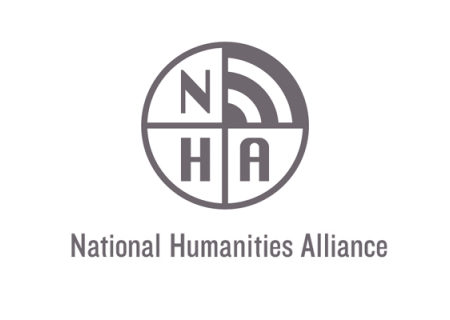CFP: 2023 National Humanities Conference

The Federation of State Humanities Councils and the National Humanities Alliance have announced the 2023 National Humanities Conference, which will be held in Indianapolis, Indiana October 25-29, 2023. In keeping with the state motto of Indiana, “The Crossroads of America,” the 2023 conference theme is “Crossroads.”
This annual conference brings together representatives from colleges, universities, state humanities councils, cultural institutions, and other community-based organizations to explore approaches to deepening the public’s engagement with the humanities.
A crossroads is a space both real and conceptual. It is a singular and plural term, referring to the many sorts of connections at which separate ways meet. Metaphorically, a crossroads is a place where a choice can, sometimes must, be made—an intersection, a forking path, an opportunity for new trajectories. In a public moment rife with divergences and impediments to progress, we seek proposals that explore the potential of the public humanities to clear paths and to orient us as we navigate connective points with a commitment to justice, community, and the necessity of shared civic space, as well as respect for honest points of disagreement.
Arriving at a crossroads may mean that our current path has carried us as far as its last useful point and a different one now calls us forward. A crossroads can allow independent roads to share, however briefly, a liminal or transformative space within which even those headed in different directions may find the wisdom to give ground, to become fellow travelers, or to change course. A crossroads may even signify a trailblazing access point for community progress and enfranchisement—an opportunity, as Reverend Dr. Martin Luther King Jr. said in his 1967 speech “Where Do We Go from Here?” for those “who live on the outskirts of Hope” to be “brought into the metropolis of daily security.”
Crossroads may be:
Opportunities for reflection: Approaching a crossroads, we decelerate briefly, in order to evaluate present conditions and weigh the options presented by the space we’re about to enter. We may also use this pause to reflect on our progress: What goals, choices, or decisions led us to inhabit this moment, this space? What connections, midpoint stops, or unexpected detours resulted in our arrival here? What sources of energy were sufficient to bring us this far? Will new or alternative sources be needed to move us forward?
Intersections and points of contact: At a crossroads, even paths that seem at cross-purposes may create unique opportunities for collaboration or space-sharing. What unexpected connections, partnerships, or points of connection allow for unique, innovative, or trailblazing projects? Where and how do the contemporary humanities now “intersect” with other fields, engage with nontraditional spaces, or reach underserved audiences through innovative strategies? Conversely, are there any kinds of intersections that may slow or impede our work, requiring us to pivot quickly and strategically in order to ensure our forward momentum?
Places for new/changing directions: Every crossroads is potentially a terminus point for one path, and the start of a new one. As humanists and educators, how do we recognize the moments when one phase of our work has reached its end, and new options open up before us? How do we select a new trajectory from the multiple options before us? How do we navigate shared spaces and recognize the opportunity to join with fellow travelers who have also arrived at this point, via a different route? Should one or another of us now “lead” the caravan to its next point? And if our paths must diverge at some future crossroads, how may we work to best use and honor this shared span of our journey?
The 2023 National Humanities Conference invites proposals that examine and/or inhabit these and other zones of choice and possibility—creative, reflective, and forward-looking—in which we may consider how the public humanities have arrived at their current place, what that place looks like to us today, and where we wish to go from here. They especially encourage proposals that engage humanities practitioners, professionals, and scholars/academics to discuss shared or aligned destinations as well as proposals that explore and delineate how and why we diverge.
They also welcome proposals that share best practices of humanities organizations and examine ways to build organizational and field capacity, including the following.
- Diversity, Equity, Inclusion, and Access (DEIA): how to operationalize practices across nonprofit organizations, including programming, board recruitment, disaggregating data, and staff hiring and retention
- Fundraising and development: how to cultivate support from private and public entities including grant writing, annual appeals, individual planned giving, and crowdfunding campaigns, as well as what new trends are emerging as philanthropic entities shift focus
- Communication strategies: how to enhance digital capacity and offerings, build programmatic accessibility, and communicate through diverse media outlets to reach increasingly fragmented audiences
- Advocacy and case-making: how to develop strategies at the local, state, and national levels
- Audience cultivation: how to broaden (socio-economically, politically, geographically, etc.) audiences for public humanities work
Learn more and submit a proposal.
The deadline for proposal submission is April 3, 2023. For questions regarding the online submission form, please contact [email protected].
We sometimes make mistakes, and we are happy to correct any errors that you may come across on our site. If you find an error, please let us know using the “submit a correction” link.